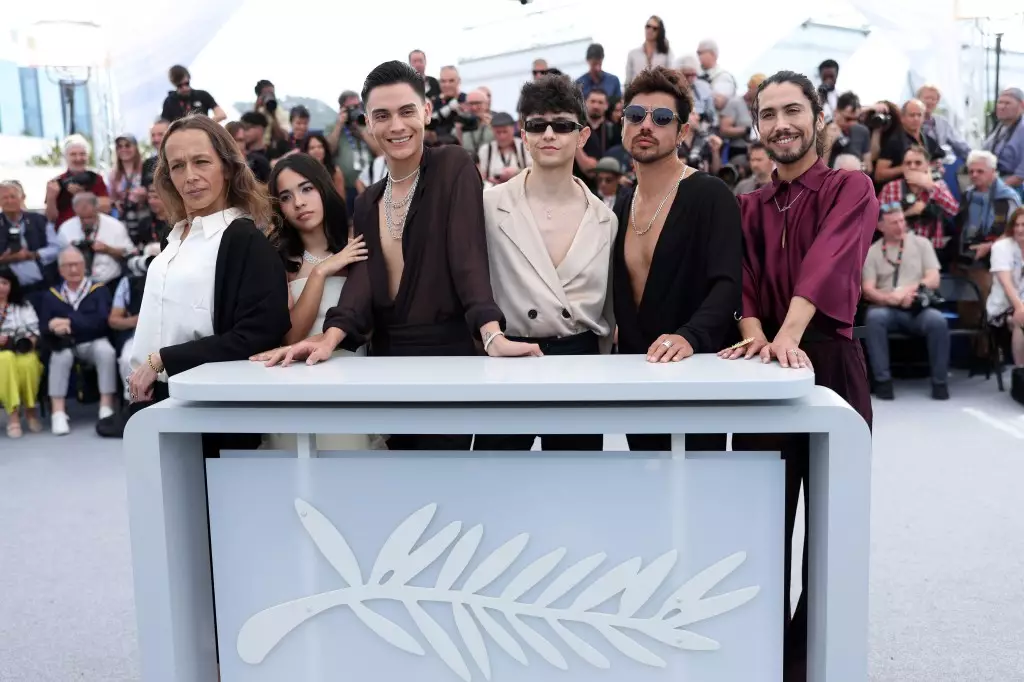In a powerful display of storytelling, Diego Céspedes’ film, “The Mysterious Gaze of the Flamingo,” has not only brought home the coveted Un Certain Regard Prize but has also underlined the transformative power of cinema in addressing societal anxieties. Set against the stark backdrop of a desolate mining town in northern Chile during 1982, the film brilliantly encapsulates the innocence of childhood amidst the chaotic eruption of fear caused by an enigmatic and lethal illness. Lidia, an eleven-year-old girl, is juxtaposed against the paranoid environment of her community, where love is perceived as a potential contagion. This narrative cleverly weaves folklore with the raw truth of prejudice, crafting a poignant critique of how marginalized identities are often blamed in times of crisis.
The metaphor of a glance as a dangerous weapon in relationships between men unveils the vulnerabilities of queer love within a rigid patriarchal society. Lidia’s quest for answers embodies a universal struggle against ignorance, making the film a vital watch not just for those familiar with LGBTQ+ issues, but for anyone grappling with societal blame and scapegoating. The courage of Lidia and her family stands as a beacon of hope, suggesting that whether the myth holds water or not, the power of connection ultimately transcends fear.
A Colombian Poetic Journey: “A Poet” Shines a Light on Artistic Struggles
On another poignant note, Simón Mesa Soto’s “A Poet” highlights the tragedy of unrealized potential within the world of artistry. With Oscar Restrepo—a character deeply entrenched in the tortured essence of the ‘starving artist’ trope—viewers are invited to ponder the cost of creative aspirations. As Oscar grapples with his faltering life choices and obsession with poetry, his unexpected relationship with Yurlady, a young girl with raw talent, injects a flicker of light into his otherwise shadow-laden existence.
Soto’s film elicits a deep empathy for those who find themselves lost in the pursuit of greatness, often at the expense of their mental well-being. The stark contrast between Oscar’s failed glory and Yurlady’s budding potential becomes a metaphor for mentorship and the delicate balance of guiding someone without overshadowing them. Here, the emotional weight of the narrative serves to remind us that art is not merely about fame; it is about seizing opportunities and nurturing others along the way.
Diverse Narratives: The Awards Recognizing Fresh Voices in Cinema
This year, the Cannes jury encapsulated a remarkable combination of revolutionary filmmakers, with Molly Manning Walker leading a diverse panel. The Best Screenplay award for Harry Lighton’s “Pillion” showcases the often-overlooked journey of self-discovery faced by young people, particularly within the LGBTQ+ community. Lighton’s courageous storytelling invites us to experience Colin’s burgeoning sexuality, representing a nuanced portrait of submission and trust in intimate relationships.
Additionally, the recognition of Palestinian filmmakers Tarzan and Arab Nasser for “Once Upon a Time in Gaza” as Best Director emphasizes the importance of perspectives that have historically been underrepresented in mainstream cinema. Their evocative approach to storytelling not only entertains but enlightens, marrying the struggles of personal narratives with the broader socio-political issues at play.
The spectrum of films honored at Cannes this year reflects a burgeoning trend towards embracing complex characters and their intersecting realities. This amplification of unique voices is crucial in an industry seeking to redefine its cultural dialogues, as the stories we choose to tell ultimately shape the collective consciousness of our time.
